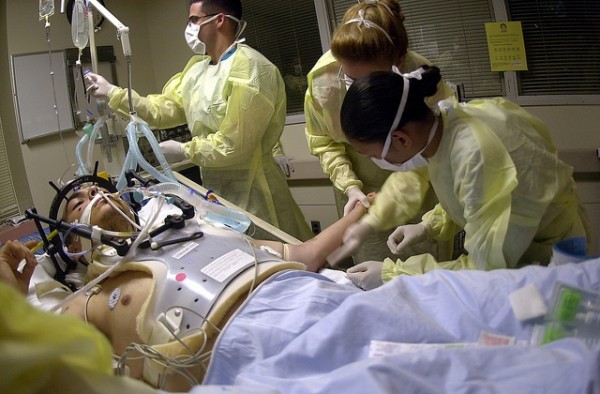Alcohol in Blood Helps Prevent Major Health Complications in Trauma Patients: Study

Alcohol reduces post injury death risk and health complications in trauma patients, according to a study.
It is well known that alcohol consumption is associated with risk to health, road accidents, falls and injuries. Experts from the University of Illinois at Chicago School of Public health found that injured patients who have certain levels of alcohol in the blood are less likely to suffer heart complications and kidney damages.
Past researches suggest nearly 64 percent of post trauma deaths occur due to health complications after sustaining major injuries, bruises and damage to the body. To examine how alcohol content averts death risk, the study examined 10-year records of 85,000 trauma cases in Illinois. This did not include patients aged below 16 and victims of minor injuries like burns and wounds.
The researchers also noted the blood alcohol levels in patients ranged between 0 to 0.5 percent, which was six times more than the permitted levels in U.S.
During the entire trial period, about 3.2 percent of trauma patients succumbed to trauma related health complications. Patients who developed serious health complications had 10.3 percent higher mortality risk compared to 2.1 percent for those without complications. It was observed that patients who had alcohol in their blood had 23.5 and 30 percent reduced susceptibility for heart problems and renal complications, respectively.
Among patients who died, 43.2 percent suffered at least one of these two conditions.
Our body ingests alcohol immediately after consumption but small traces still left inside help protect against damages to vital organs. The study authors were unable to exactly determine how alcohol ensures survival of trauma patients.
"After an injury, if you are intoxicated there seems to be a substantial protective effect. But we don't fully understand why this occurs," said Lee Friedman, study author and UIC injury epidemiologist in a news release.
However, they believe these findings will aid developing new treatment to increase survival after accidents and trauma.
"The current analysis shows there were reductions in medical complications dominating the cardiovascular system and kidneys, which provides clues to solving this interesting and potentially life-saving puzzle," Friedman said.
More information is available online in the journal Alcohol.
Jun 06, 2014 08:50 AM EDT





